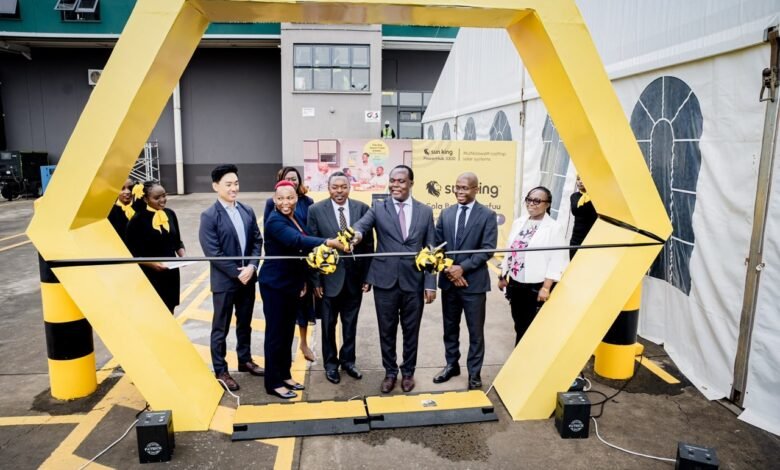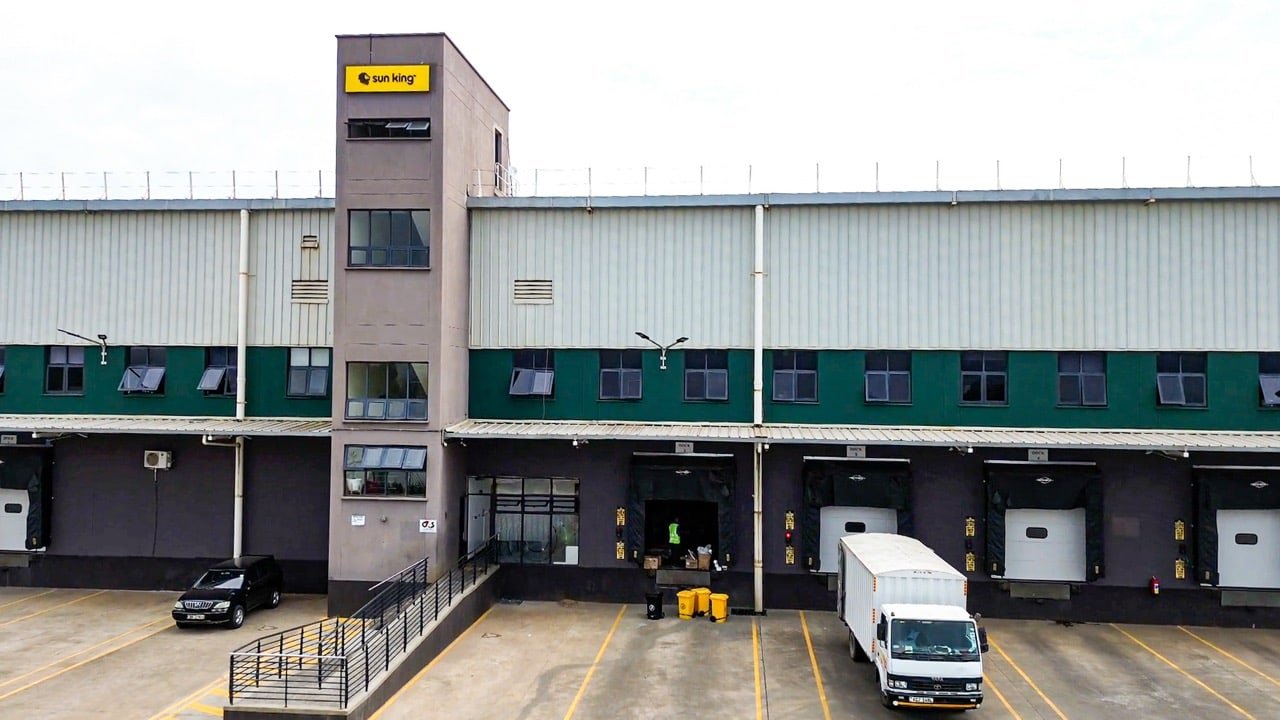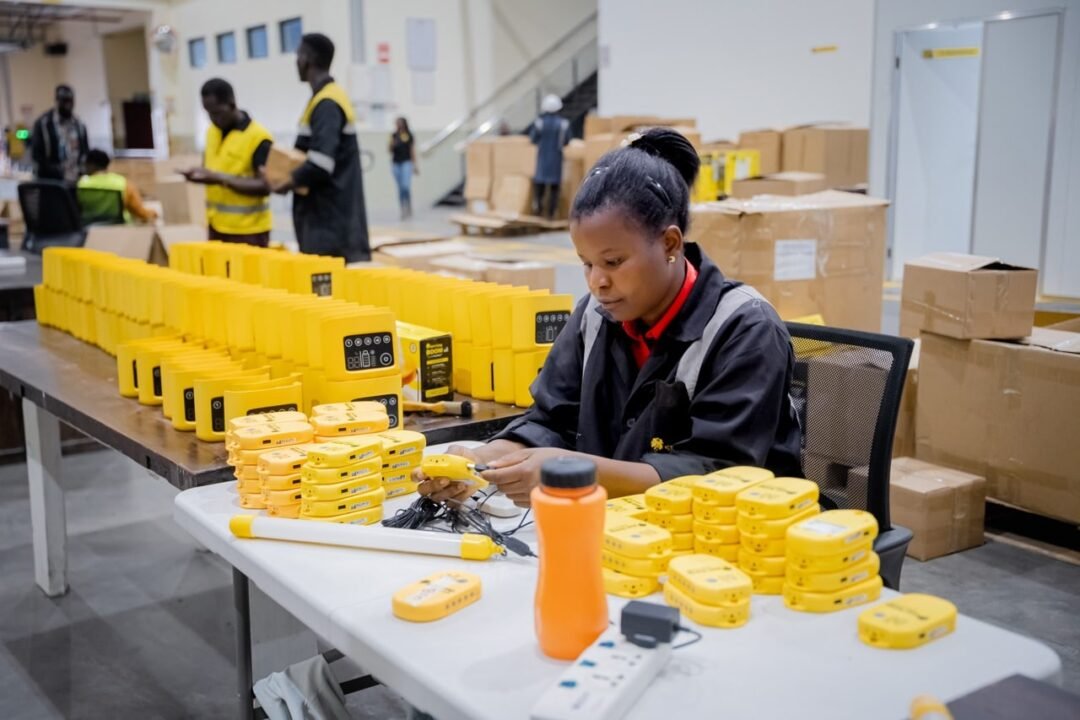
Sun King, a company known for its pay-as-you-go solar products across Africa, has just opened its first large-scale manufacturing plant on the continent. The new 7,600-square-meter facility is located in Tatu City, a special economic zone in Kiambu County, Kenya. This move signals a significant shift for the company, moving it from being purely an importer and distributor to a local manufacturer.
Here’s a breakdown of the new operation and why it’s a notable move for the region’s tech ecosystem.
What the factory will actually do
The new Tatu City facility isn’t just an assembly line; it’s a consolidated hub for manufacturing, device refurbishment, and high-capacity warehousing.
Sun King says the plant has an annual production capacity of up to 700,000 units, with plans for further expansion. The first products to roll off the line will be Sun King’s solar-powered televisions and smartphones—devices specifically designed to run efficiently on the company’s solar systems.

The company is also “actively investigating” how to expand into its other product lines, which include energy-efficient fans and freezers.
The core business strategy is to localize its manufacturing. By building hardware closer to its main customer base, Sun King aims to shorten its supply chains and gain more control over its production. Kota Kojima, Sun King’s Chief Operating Officer, said the move gives the company “the scale to deliver more efficiently, the flexibility to innovate faster, and the foundation to grow a resilient manufacturing ecosystem here in Africa.”
Sun King is putting a large number on this strategy: it estimates the local investment could eventually replace more than $150 million in hardware imports across Africa over the next five years.
“This facility allows us to harness Kenya’s talent and ingenuity to keep delivering on that promise,” said T. Patrick Walsh, Sun King’s CEO and Co-Founder, framing the move as a way to control quality and cost for its customers.
Kenya’s government is all in
This factory opening is also a key part of Kenya’s broader economic strategy. The government’s long-term “Vision 2030” plan heavily emphasizes industrialization as a way to expand manufacturing’s contribution to the national GDP.
The inauguration event’s guest list shows just how interconnected this project is with national policy. It wasn’t just a corporate party; a large contingent of Kenyan government officials and industry leaders were present.
The attendees included:
- Government: Dr. Juma Mukhwana, Principal Secretary for the State Department of Industry, and Eng. Isaac Kiva, Secretary for Renewable Energy.
- Industry & Policy: Representatives from the Kenya Association of Manufacturers (KAM), the ICT Authority of Kenya, and the Kenya Renewable Energy Association (KEREA).
- Standards & Regulation: Officials from the National Environment Management Authority (NEMA), the Kenya Bureau of Standards (KEBS), and the Electronic-waste Producer Responsibility Organisation of Kenya (EPROK).
- Finance: The project is also backed by a formidable list of banking partners, with representatives from Stanbic Bank, Citi Bank, Absa Bank, Co-operative Bank, and Kenya Commercial Bank all in attendance.
Dr. Juma Mukhwana, the Principal Secretary of Industry, explicitly tied the factory to the government’s “Bottom-Up Economic Transformation Agenda,” calling the facility a “symbol of growing confidence in Kenya’s local manufacturing.”

Jobs and market scale
On day one, the Tatu City facility employs 90 people, with a 60/40 split between men and women. Sun King projects this will expand to over 350 employees within five years.
The company also plans to create a local talent pipeline. It intends to partner with the National Industrial Training Authority (NITA) and local universities to create structured internship and apprenticeship programs, with the stated goal of offering “pathways to full-time roles” for high-performing trainees.
Dr. Wale Aboyade, Sun King’s Senior Vice President of Public Policy, stated the facility is part of a “long-term partnership” to advance “Africa’s manufacturing capability,” adding that “Kenya has the policy vision, the talent, and the drive to lead this transformation.”
Sun King’s footprint in Kenya, where it is headquartered, is already massive. The company employs nearly 10,000 people across the country and claims that one in five Kenyans has access to one of its products. Its growth has been aggressive: in 2017, it was delivering 10,000 solar kits a month across the continent; today, that number is over 330,000. In Kenya alone, the company says its sales have grown to more than 100,000 solar kits per month.


